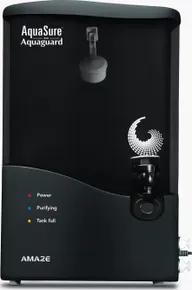The best RO water purifier for you depends on a long list of factors and requirements.
You have the choice between purchasing, renting, or installing these systems. If you would rather not make an upfront investment in a system, renting is usually the better option. You will also want to consider how much space your unit will take up and whether or not it is portable.
A whole house water filter can be a great option if you already have concerns about your water quality but don't know where the contamination is coming from. If you are unsure whether you need a whole house water filter, a look down the road of five years can give you a clear answer. For example, if your water is not tested it is not possible to know for sure if it is safe to drink in five years time.
Image source: https://www.smartprix.com/
This type of system uses an air gap to filter out contaminants and removes biological contaminants (bacteria). This means that the system only needs to be cleaned on a monthly basis, which makes it ideal for those who want their system up and running as soon as possible. However, this type of system also requires some knowledge and experience in regards to its installation.
Within the RO water purifier industry there are two main types of systems: semi-permeable membrane and non-membrane systems. Non-membrane systems use a combination of filtration which improves the quality of water significantly. Membrane filters are useful as they can filter out smaller particles than non membranous systems can. However, these membranes require regular cleaning and replacement which can be time consuming and cost a great deal of money in both time and money.
You will need to consider the amount of space you have available, how much water you would like to produce, where you would like to locate the system, and your budget. For example, if your plant is small (approximately 85 square feet or less) you will want to purchase a smaller unit. However, there are also portable units that add even more flexibility by allowing you to move them around a range.
Image source: https://www.reliancedigital.in/
The first thing to consider when choosing a water softener is your hardness levels. The standard range for hardness is from 0-6 using grains per gallon as a measurement. A typical level for home drinking water is 3-4 grains per gallon, however this number may be higher depending on where you live and what kind of water source you have available. Also keep in mind that most municipal sources will have elevated levels of hardness due to the increased amount of minerals and salts present in the incoming tap water supply.
If you have hard water, you will need to purchase a water softener. Softening agents are added to water to make it less damaging to plumbing and appliances. Another benefit is that once your softener is in service you don't need to worry about hardening up your plumbing systems or fireplaces.
Cities and states commonly specify the level of hardness they would like their tap water supply to be below the standard guidelines provided by the EPA. Levels of hardness below this line are considered acceptable, which makes the installation of a water softener mandatory.

Comments
Post a Comment